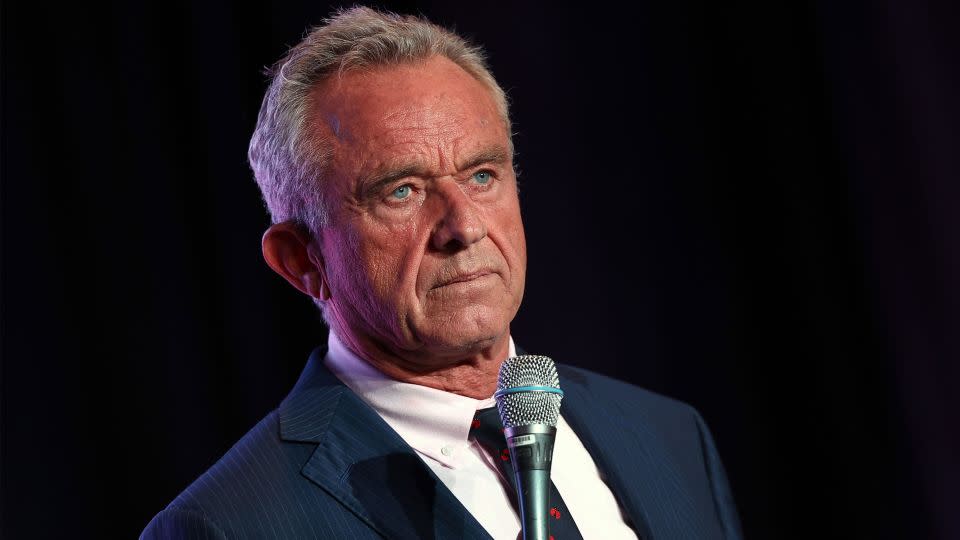RFK Jr. says he had ‘visceral reaction against’ removal of Robert E. Lee statue in Charlottesville

Independent presidential candidate Robert F. Kennedy Jr. said he had a “visceral reaction against” the removal of the statue of Confederate Gen. Robert E. Lee that was once the focal point of the deadly 2017 “Unite the Right” rally in Charlottesville, Virginia.
Kennedy said in an interview with podcast host Tim Pool on Friday that he opposes “destroying history” when asked about the Charlottesville City Council’s decision in 2021 to remove the town’s statute of Lee and melt it down to create new public art. Kennedy, who went to law school at the University of Virginia, said he had a personal reaction to seeing the statue removed.
“I have a visceral reaction against the attacks on those statues,” Kennedy said. “There were heroes in the Confederacy who didn’t have slaves, and you know, I just have a visceral reaction against destroying history. I don’t like it.”
“I think we should celebrate who we are,” Kennedy added. “We should celebrate the good qualities of everybody.”
The 2017 decision to remove the statute of Lee from a park in Charlottesville sparked outrage, including from White nationalist sympathizers who gathered at the “Unite the Right” protest that August and violently clashed with counter-protesters. Heather Heyer, a counter-protester, was killed when a man drove his car into a crowd.
Kennedy said he doesn’t “think it’s a good, a healthy thing for any culture to erase its history,” and suggested historical figures like Lee should be celebrated for their positive qualities even if they also took actions that are now “regarded as immoral … or wrong.”
“We need to be able to be sophisticated enough to live with, you know, our ancestors who didn’t agree with us on everything, and who did things that are now, you know, regarded as immoral, you know, or wrong,” Kennedy said. “Maybe they had other qualities that we want to celebrate.”
“Clearly, Robert E. Lee had extraordinary qualities of leadership,” he added.
Kennedy also defended his past celebration of Indigenous Peoples’ Day, a holiday celebrated on Columbus Day borne out of Native American advocacy to honor Indigenous peoples who inhabited the Americas. Pool, the podcast host, accused Kennedy of seeking to erase Christopher Columbus’ legacy by celebrating Indigenous Peoples’ Day, but Kennedy argued both holidays can be honored alongside each other.
“I think it’s important for us to be part of a community where we can recognize all kinds of people. We can recognize Italian Americans to whom that is an important holiday, and at the same time, we can recognize the indigenous people who were, you know, made the ultimate sacrifice of one of the greatest genocides in the history,” Kennedy said.
At a rally in Philadelphia in October, during which he formally announced his switch from running in the Democratic primary to running as an independent, Kennedy said it’s “a hopeful sign” that the US celebrates Indigenous Peoples’ Day. Prior to his remarks, Kennedy was introduced by Lewis GrassRope, a member of the Lower Brule Sioux Tribe.
“It’s a hopeful sign now for our country that we celebrate Indigenous Peoples’ Day,” Kennedy said last October. “It shows that our country is now ready to explore and to tell each other the untold histories of those dispossessed people who have previously languished on the margins.”
For more CNN news and newsletters create an account at CNN.com

